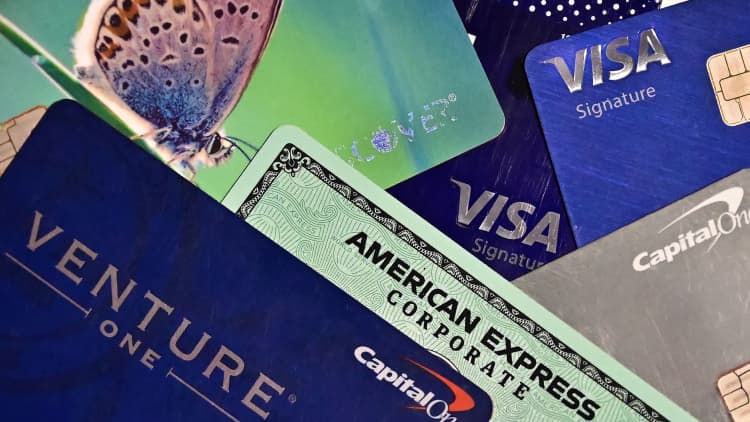
Americans now owe a total of $1.13 trillion on credit cards, according to a new report on household debt from the Federal Reserve Bank of New York.
According to the New York Fed, credit card balances increased by $50 billion, or approximately 5%, in the fourth quarter of 2023. Credit card delinquencies also increased, particularly among younger millennials, or borrowers aged 30 to 39, who are burdened with high levels of student loan debt.
“This indicates increased financial stress, particularly among younger and lower-income households,” said Wilbert van der Klaauw, an economic research advisor at the New York Federal Reserve.
“Even though the economy overall is doing great, there are pockets out there where people are overextended,” New York Fed researchers said on a press call Tuesday.
Nearly one-tenth of credit card users find themselves in persistent debt
Many consumers are feeling squeezed by rising prices, particularly for food, gas, and housing, and more cardholders are carrying debt from month to month or falling behind on payments, according to a separate report from the Consumer Financial Protection Bureau.
Nearly one-tenth of credit card users find themselves in “persistent debt,” where they are charged more in interest and fees each year than they pay toward the principal—a pattern that is increasingly difficult to break, the consumer watchdog said.
The average annual percentage rate has risen to more than 20%, an all-time high
Credit card rates were already high, but they rose in tandem with the Federal Reserve‘s 11 rate hikes, four of which will take place in 2023.
Most credit cards have variable interest rates, so there’s a direct link to the Fed’s benchmark. As the federal funds rate rose, so did the prime rate and credit card rates.
The average annual percentage rate has risen to more than 20%, an all-time high.
“Even though $1 trillion in credit card debt is a staggering number to comprehend, the unfortunate truth is that it will only increase from here,” said Matt Schulz, chief credit analyst at LendingTree.
“Americans are still struggling with lingering inflation and rising interest rates,” he went on to say, “forcing them to lean on credit cards more and more.”
If you have a balance, try contacting your card issuer to request a lower rate. Schulz recommended consolidating and paying off high-interest credit cards with a lower-interest home equity loan or personal loan, or switching to an interest-free balance transfer credit card.
According to Mike Townsend, a spokesperson for the American Bankers Association, consumers should compare credit card offers regularly, pay as much of their balance as they can as soon as possible, and avoid paying their bills late.
